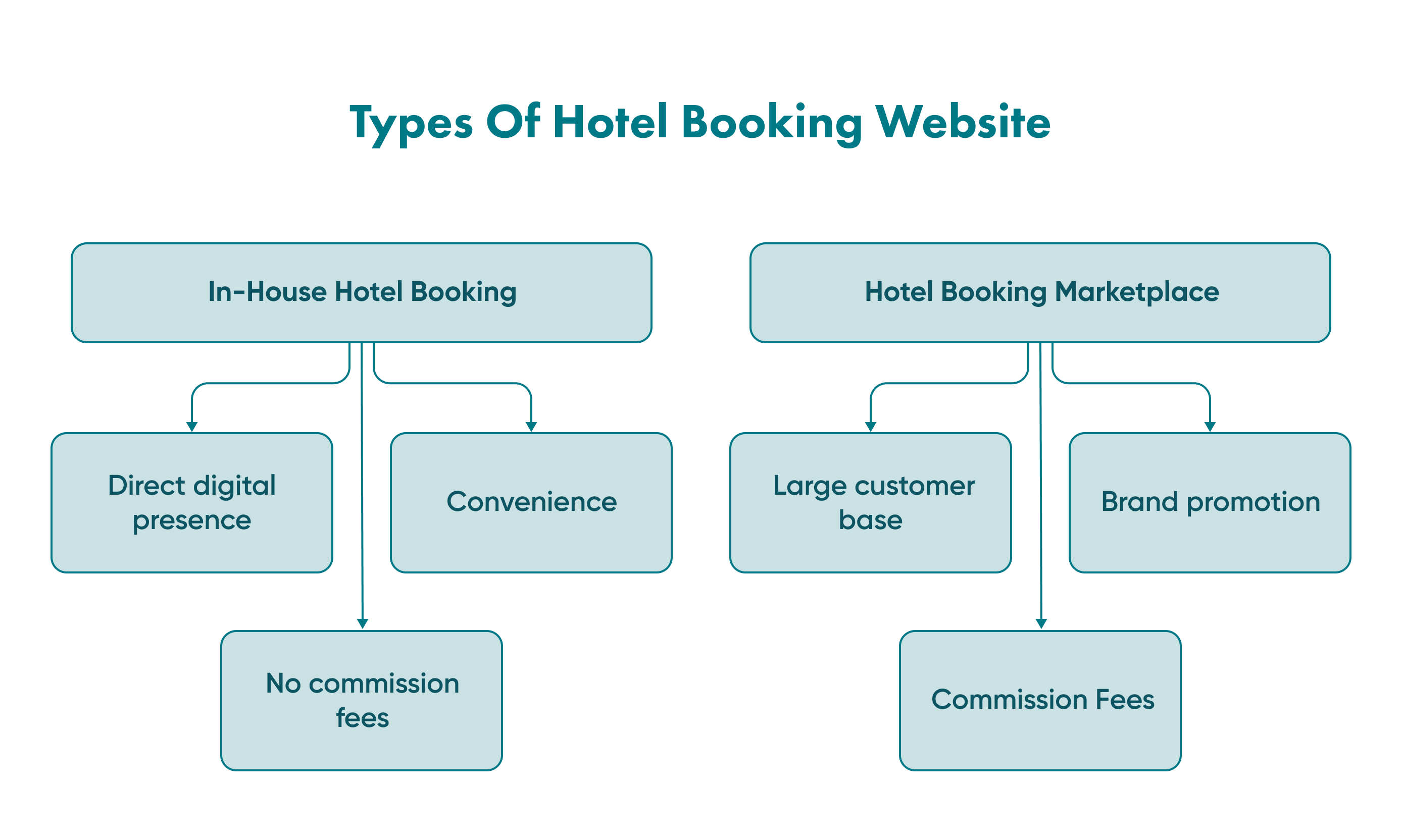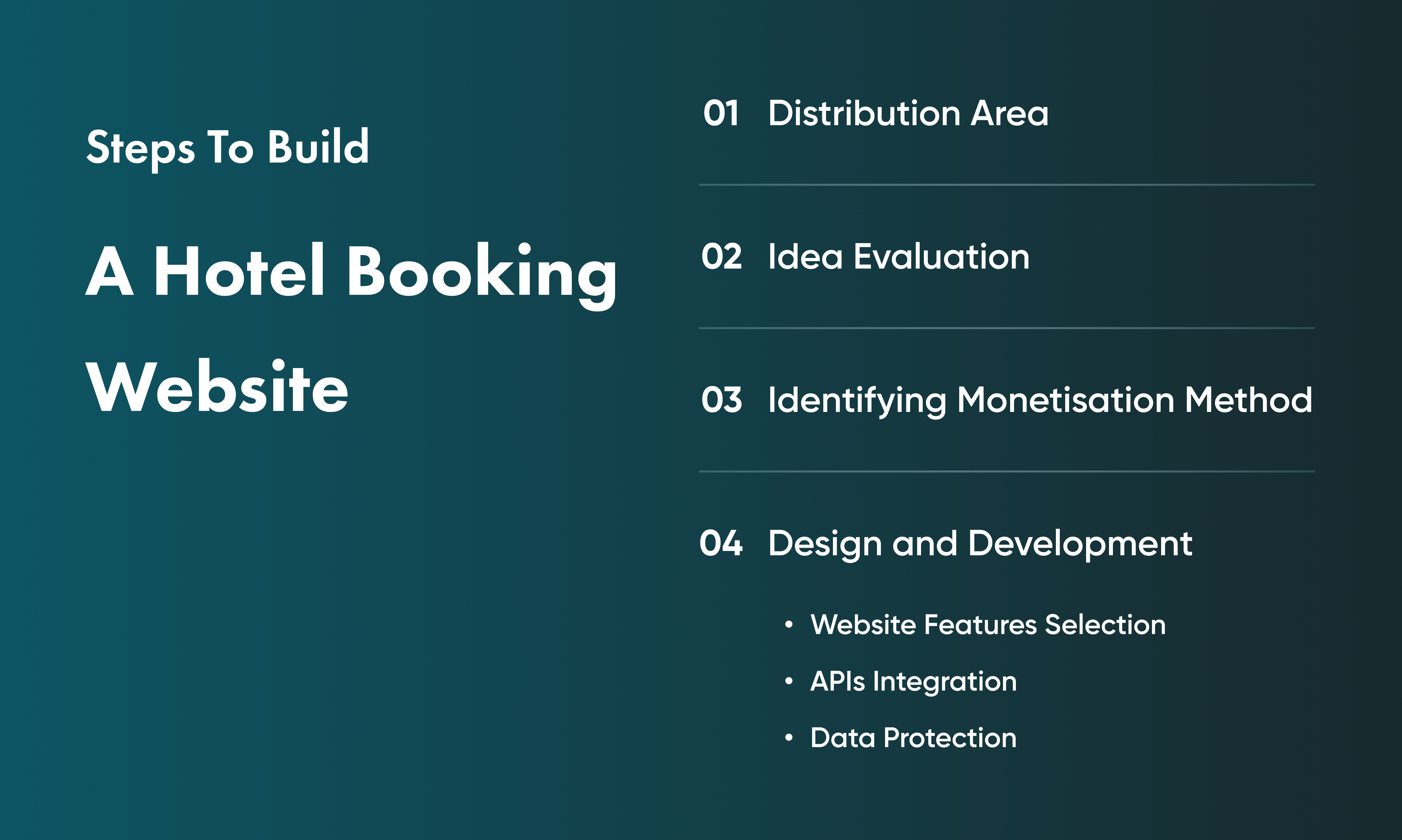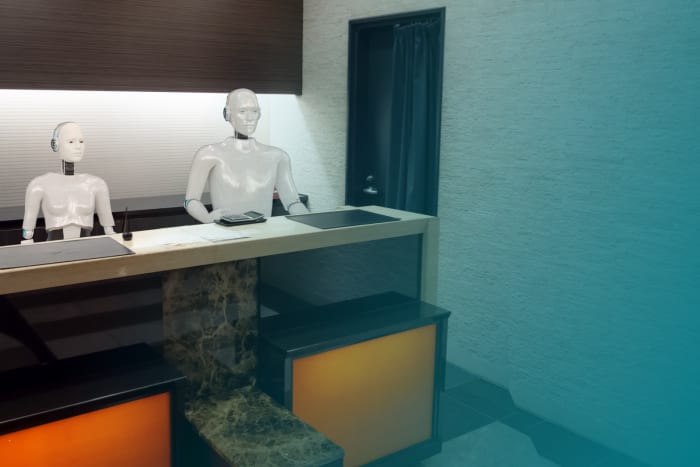Creating An Online Hotel Booking System


Nowadays, hotels of all shapes and sizes cannot economically operate without an online connection and some sort of booking system. Almost all customers want to be able to book online, either through a hotel’s own website or through a third-party booking website. Many more hotel owners are considering having an in-house booking facility on their hotel website. This is no longer the preserve of hotel groups or large hotels. A hotel booking website development can also be a good startup idea (though the competition is fierce). In addition to website booking system development, there also is the possibility of further excpansion into the mobile app market.
Go Wombat has developed extensive expertise in hospitality software development in this industry over the last six years and we want to share our expertise. The Go Wombat profile on Clutch.co provides reviews from satisfied clients in the hospitality sector.
Types Of Hotel Booking Website

There are two basic types of booking facilities: ‘in-house’ incorporated within a hotel’s own website and third-party booking ‘marketplaces’ such as Booking.com. Both types have advantages and disadvantages. However, they tend to offer varying services. Often the third-party booking system will offer additional incentives and services.
In-House Hotel Booking
An in-house hotel booking system has several advantages.
Direct digital presence
This is an opportunity for direct brand marketing to the customer with unfiltered communication with hotel staff. Accommodation and other facilities can be presented as the hotel owner wishes. Hotels can sell direct to attract more customers to their offering.
No commission fees
An in-house online hotel booking system or mobile app avoids the need to pay a commission fee to hotel booking marketplaces.
Convenience
Many customers prefer the convenience and surety of booking directly on a hotel’s own website. Everything is centralised in one system and enquiries can be answered easily.
However, this system does require the hotel to be able to handle bookings efficiently. Staff errors or shortages can present capability issues.
Hotel Booking Marketplace
A third-party booking system ‘marketplace’ serves as an intermediary hotel room booking system between hotel and customer. The booking marketplace presents hotel options and users can compare hotels and use filters to choose the most suitable one for their requirements.
Large customer base
The global access of a marketplace booking system to a huge number of potential customers is a strong attraction for hotels. This is significantly larger than the ‘reach’ of a hotel’s own website.
Brand promotion
Having a presence on a marketplace website provides the hotel with advertising and an SEO effect without separate investment.
Commission fees
Hotels pay fees to make their services available on the booking marketplace. This is a factor to be considered in budgets.
Go Wombat develops software with Python, a high-performance and versatile language which is well-suited for complex apps. Booking.com – the well-known hotel booking marketplace system was created using Python.
Building A Hotel Booking Website

There are several important steps in launching a new product effectively.
Distribution Area
Whilst it is possible to select a particular geographical region for a new booking marketplace website, we would recommend a worldwide approach. Local distribution is unlikely to be profitable and many potential customers will be lost.
Idea Evaluation
Market research is essential to validate the idea of creating a new booking website. At Go Wombat, our business analysts can evaluate a new idea and analyse its potential market and competition to produce a strategy for developing the required online hotel booking system software. Even a small hotel booking system will benefit hoteliers — digitalisation is a new business era after the COVID-19 pandemic. The monetisation method will depend on the website type wanted – business models can be combined.
Hotel chain website
This website will be available for booking accommodation only in the chain’s hotels, so profit depends on the number of potential customers.
Commission
A hotel booking marketplace collects commission fees both from hotels and guests. Hotels pay for the advertising and hotel guests pay a fee (included within the offered price) when booking.
Advertising
Hotel reservation platforms can charge fees for additional advertising of related services such as car rental, airport shuttle and travel tickets.
Commercial broking
Hotel owners can sell room availability to other services such as Expedia, which then resell them to their users.
Niche business model
Specific offerings could be for cheap accommodation or last-minute or short-stay (a few hours only).
Website Features
A typical hotel booking website has a range of features available for management and customer.
For the management
Registration and profile
A hotel profile with a detailed description.
Hotel panel
Management of the profile and primary characteristics like location, number of rooms, price and photographs.
Booking management
Bookings, conditions and terms, cancel reservations, and other tasks.
Content Management System
Administration of the whole website: content, payments, gather analytics, and statistics.
Notifications
Hotel booking marketplaces will notify hoteliers about promotions and discounts.
Chat
An integrated chat facility to communicate with customers.
For the customer
User profile
Users should be able to sign up and sign in via social media or email and phone numbers. Registration on a hotel booking website must not be time-consuming. A personal page allows users to add their names, city, country, personal information and payment methods.
User panel
A range of settings which help users search, book, comment, chat, pay and operate booking processes.
Search
A search facility should be available with integrated filters to narrow a search by price, rating, distance and availability.
Maps
Integrated maps will simplify the search process and show nearby facilities such as restaurants.
Reviews and ratings
Users want to know more information about a hotel they plan to visit. Ratings and reviews by other guests will help them choose appropriate accommodation and later rate it.
Push notifications
These keep customers updated and engaged, and remind them about upcoming discounts and events.
Chat
This facility allows a customer to contact the hotel management; this can be either live or through a chatbot.
Payment gateway
Customers will make online payments for accommodation using an integrated payment system. A reliable and trustworthy payment system is essential for card payment or through a payment gateway, such as PayPal, Braintree or Stripe.
What kind of hotel booking website do you need? Contact Go Wombat for consultation.
Application Programming Interfaces (API)
Zilyo, Zumata, Booking.com for booking.
The TripAdvisor Content API for ratings and reviews.
Google Places API for recommendations of interesting places.
Google Maps API to integrate maps.
Amadeus or Travelport API for access to the global distribution system (GDS) – an international travel booking network.
Google Hotel API. for hotel booking marketplaces.
Data Protection
An online hotel booking website needs up-to-date protection.
The website should have an SSL certificate and an HTTPS protocol as a protective layer. A Secure Socket Layer (SSL) certificate protects the website from cyber fraud attacks and theft of confidential information.
HyperText Transfer Protocol Secure (HTTPS) works with the SSL certificate to encrypt the connection between browser and server.
There should be compliance with the OWASP TOP-10 security standard. It is recommended to install payment systems supporting 3D Secure – a modern technology that contributes to more secure payments on the Internet. Anti-malware software and tools such as Cloudflare will protect the website from distributed denial of service (DDoS) attacks.
Regular backup of the information on the website, including confidential user data) will protect against malfunctions and errors. avoid its loss. Compliance with the General Data Protection Regulations (EU) or similar rules is necessary.
A Competitive Hotel Booking Management System
A hotel booking website needs to be kept up to date to retain users and stay competitive.
Content updates
Changes to rooms and facilities require updates to photographs, videos, conditions, contacts and other information. Information about events and discounts must be kept relevant.
Website performance
Pages should load quickly and not be overloaded with too many images and banners. Navigation should be intuitive and user-friendly. The website’s functionality and installed services should be monitored, analytics gathered and changes made in a timely fashion.
Customer-focus
Analyse feedback from customers and listen to their opinion. If you show that you don’t ignore their feedback, it will increase customer loyalty.
If you are looking for a startup idea, you might see an opportunity to create a new hotel booking marketplace to gain a competitive edge and provide hotels with beneficial options to promote their hotel via your marketplace.
Unlock Success with Premium Software Development
Contact us


Design And Development
At Go Wombat we can build the best hotel booking system for your business. After the product launch, we maintain it and develop updates if needed.
Go Wombat’s IT consultants will help you choose an appropriate development plan. The online booking website development will depend on the functionality included. Our Python/Django tech stack allows us to build an app of any complexity.
Go Wombat maintains continuous contact with clients during the development process. We divide the process into phases called ‘sprints’ and use various methodologies like Agile and Waterfall in building the project. We give a demonstration after each sprint to ensure that everything goes according to the specification.
We look forward to your project – Contact Go Wombat now!
How can we help you ?






